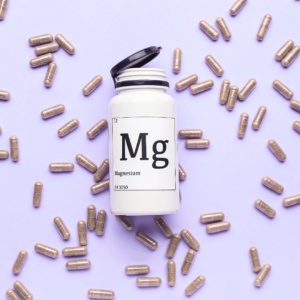One definition of gaslighting is the repeated denial of someone’s reality to invalidate or dismiss them. This scenario is unfortunately all too common in the field of women’s health.
One big example of this is endometriosis. On average it takes up to 10 years for a woman to be diagnosed with endometriosis. This is not solely due to the complexity around the diagnosis of endometriosis (typically involving surgery) but due to the cultural tolerance and normalisation of menstrual pain and symptomatic menstrual health. The time to diagnosis demonstrates the repeated diminishing & dismissing of women’s pain.
The road to diagnosis of a condition like endometriosis typically involves many repeated doctor’s visits, ER visits, and appointments with various specialists (eg. gastroenterologist) as endometriosis can often present with symptoms not classically associated with the reproductive system like digestive issues/IBS, desperately looking for answers. The financial burden is also high, with it being estimated that yearly expenses for managing a condition like endometriosis checks out at $30,000, the majority of the cost being due to productivity loss.
As a practitioner with years of experience supporting women with endometriosis, I have rarely, if ever, come across a woman who had her pain or symptoms investigated from her first Dr’s appointment & not told it’s just a ‘bad period’. I find my colleague’s experience the same.
The fact that women weren’t legally required to be included in medical trials until 1993 (yes, 1993) demonstrates a huge gap in what we know about women’s health, and how women’s physiology differs from male physiology, which opens up many questions on how women may be responding to differently to medications or medical interventions. In particular, the difference in response depends on life stages – adolescence, matured menstrual health, on the pill or other forms of hormonal contraception, pregnancy, postpartum, breastfeeding, perimenopause and menopause.
All these stages of the female experience contain varied iterations of hormonal expression and metabolic health – which all then go on to influence how something like a medication or medical intervention is interpreted by the body, the majority of which have never been tested on a large scale.
Could this in itself be playing a huge role in why women’s experiences and stories are often not believed or dismissed by medical care providers?
The medical system as a whole needs to loosen its grip on focusing solely on what the literature says, and pay equal attention to what the person in front of them is saying.
A prime example of this was the largest study to date that came out in 2023 on oral contraceptive pill use and depression. According to the study, women who began to use contraceptive pills as teenagers had a 130 per cent higher incidence of symptoms of depression, while the corresponding increase among adult users was 92 per cent. The study also found even after discontinuing the pill, teenage users still had an increased incidence of depression, a phenomenon not observed in adult users.
Prior to this, many women’s stories of mental health and mood changes after beginning the oral contraceptive pill are many and not hard to find, but often dismissed with there being “no research to support this.” Whilst the new 2023 research may not necessarily change the way Dr appointments play out, with it being estimated that it takes on average 17 years for current research findings to become common knowledge/practise for physicians, it provides a pillar of validation and solidarity for the hundreds of thousands (if not millions) of women worldwide who have experienced dismissal of their symptoms, and the knowledge that no, they aren’t crazy.
Women are used to not being believed in their doctor’s office, going in mentally preparing what to say to be truly seen & believed.
As with any field, there are always the gems, with there being many incredible doctors out there ready and willing to listen to and support their patients. Find these doctors and hold onto them!
If you have had an experience of medical gaslighting where your experience has not been listened to, believed and in particular has then caused further deterioration to your health, please know that your experience is real & not ‘all in your head’. There are practitioners of all kinds out there who believe you & want to help you. At Femtek we believe and champion women’s health and experiences and are here to support you in achieving your health goals.
One big example of this is endometriosis. On average it takes up to 10 years for a woman to be diagnosed with endometriosis. This is not solely due to the complexity around the diagnosis of endometriosis (typically involving surgery) but due to the cultural tolerance and normalisation of menstrual pain and symptomatic menstrual health. The time to diagnosis demonstrates the repeated diminishing & dismissing of women’s pain.
The road to diagnosis of a condition like endometriosis typically involves many repeated doctor’s visits, ER visits, and appointments with various specialists (eg. gastroenterologist) as endometriosis can often present with symptoms not classically associated with the reproductive system like digestive issues/IBS, desperately looking for answers. The financial burden is also high, with it being estimated that yearly expenses for managing a condition like endometriosis checks out at $30,000, the majority of the cost being due to productivity loss.
As a practitioner with years of experience supporting women with endometriosis, I have rarely, if ever, come across a woman who had her pain or symptoms investigated from her first Dr’s appointment & not told it’s just a ‘bad period’. I find my colleague’s experience the same.
The fact that women weren’t legally required to be included in medical trials until 1993 (yes, 1993) demonstrates a huge gap in what we know about women’s health, and how women’s physiology differs from male physiology, which opens up many questions on how women may be responding to differently to medications or medical interventions. In particular, the difference in response depends on life stages – adolescence, matured menstrual health, on the pill or other forms of hormonal contraception, pregnancy, postpartum, breastfeeding, perimenopause and menopause.
All these stages of the female experience contain varied iterations of hormonal expression and metabolic health – which all then go on to influence how something like a medication or medical intervention is interpreted by the body, the majority of which have never been tested on a large scale.
Could this in itself be playing a huge role in why women’s experiences and stories are often not believed or dismissed by medical care providers?
The medical system as a whole needs to loosen its grip on focusing solely on what the literature says, and pay equal attention to what the person in front of them is saying.
A prime example of this was the largest study to date that came out in 2023 on oral contraceptive pill use and depression. According to the study, women who began to use contraceptive pills as teenagers had a 130 per cent higher incidence of symptoms of depression, while the corresponding increase among adult users was 92 per cent. The study also found even after discontinuing the pill, teenage users still had an increased incidence of depression, a phenomenon not observed in adult users.
Prior to this, many women’s stories of mental health and mood changes after beginning the oral contraceptive pill are many and not hard to find, but often dismissed with there being “no research to support this.” Whilst the new 2023 research may not necessarily change the way Dr appointments play out, with it being estimated that it takes on average 17 years for current research findings to become common knowledge/practise for physicians, it provides a pillar of validation and solidarity for the hundreds of thousands (if not millions) of women worldwide who have experienced dismissal of their symptoms, and the knowledge that no, they aren’t crazy.
Women are used to not being believed in their doctor’s office, going in mentally preparing what to say to be truly seen & believed.
As with any field, there are always the gems, with there being many incredible doctors out there ready and willing to listen to and support their patients. Find these doctors and hold onto them!
If you have had an experience of medical gaslighting where your experience has not been listened to, believed and in particular has then caused further deterioration to your health, please know that your experience is real & not ‘all in your head’. There are practitioners of all kinds out there who believe you & want to help you. At Femtek we believe and champion women’s health and experiences and are here to support you in achieving your health goals.





